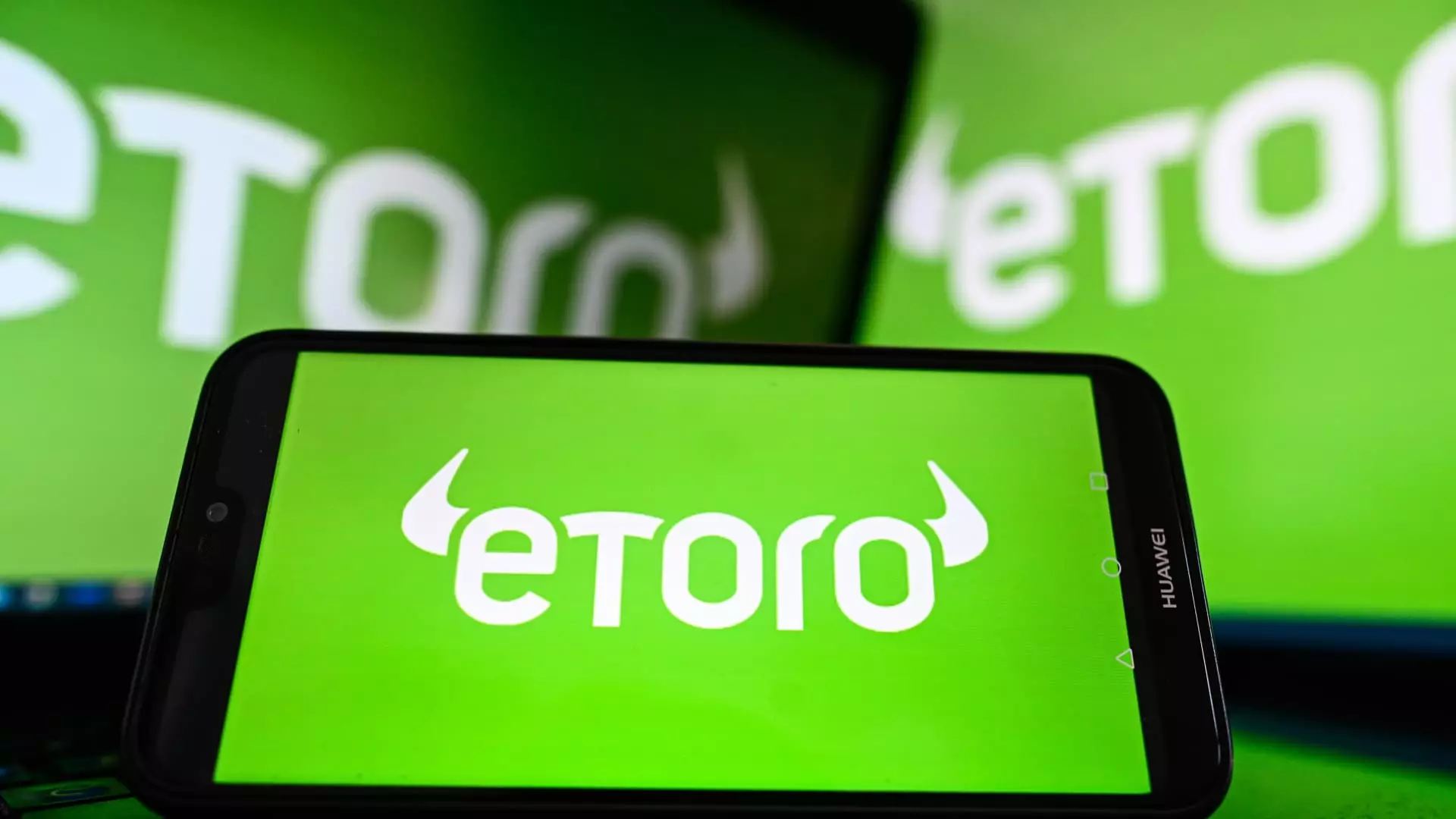In a spectacular display of investor enthusiasm, eToro’s shares surged upon their debut on the Nasdaq, with the stock opening at an impressive $69.69—a 34% surge from its initial public offering (IPO) price. This move lifted the company’s market capitalization to a striking $5.6 billion and served as an electric harbinger for the IPO landscape. The Israeli-based investment platform successfully raised nearly $310 million by selling nearly six million shares at $52 each, surpassing expectations and drawing attention from Wall Street. Investors are eager to see whether eToro’s optimistic start can revive the prevailing despondency surrounding IPOs in recent months, as highlighted by the delays in other listings tied to geopolitical tensions and market volatility.
This Nasdaq debut isn’t just a numbers game; it represents a shift towards renewed confidence among investors. The ability to attract a significant valuation despite ominous market signals displays a resilience that bodes well for future launches. Wall Street is closely monitoring eToro for signs of a broader recovery. The economic climate is poised delicately on the precipice of progress, with many looking towards eToro enthusiasts and potential competitors such as Chime and Hinge Health for guidance.
Market Sentiment and the Path Forward
Chief Executive Officer Yoni Assia’s ambitious vision translates into a narrative of hope against a backdrop of uncertainty. In a recent interview, Assia expressed optimism about the market’s recovery, suggesting that the worst of the “correction” might be behind us. While naysayers may scoff at this optimism, it’s essential to recognize that every downturn breeds a counter-reaction—be it cautious apprehension or bold risk-taking. Assia believes that the CBOE Volatility Index, a significant measure of market fluctuations, could stabilize, thus providing fertile ground for further IPOs. This perspective aligns with the center-right liberal view that believes in fostering economic growth through innovation and market participation.
It’s worth scrutinizing the backdrop of eToro’s IPO against the wider economic policy landscape. The focus has drifted frequently toward the legislative atmosphere in Washington. The anticipation of Trump’s political resurgence intertwined with market sentiment and created uncertainty, contributing to a moratorium on many IPO plans. It raises the question: Are markets unduly swayed by political shifts, or are they merely reacting to the complexities that come with such changes?
Financial Performance: A Beacon of Hope
eToro’s financials deserve a closer examination, particularly the remarkable growth in net income which skyrocketed almost thirteenfold to $192.4 million last year. Such performance signifies an underlying strength that appeals to investors who are often skeptical about the volatile nature of tech investment. Moreover, the company’s strategic pivot towards cryptocurrencies has clearly paid off, with revenue from crypto assets growing more than threefold. For a company that once seemed to toil in the shadows of more established competitors, this pivot has positioned eToro as a key player in an evolving landscape.
However, one can’t ignore the volatility of the crypto market—an asset class praised and demonized in equal measure. eToro’s projections that crypto assets would account for a declining portion of its trading commissions may signify an intentional diversification, possibly to buffer against the unpredictable swings of the cryptocurrency market. This is a prudent move as the market matures and seeks stability. The lingering question remains whether eToro is prepared for potential regulatory challenges that often accompany rapid growth in financial technology sectors.
A Competitive Landscape: Challenges and Opportunities
As eToro emerges from its IPO, it stands at a crossroads with competitors like Robinhood, Chime, and others breathing down its neck. The marketplace for financial service platforms is increasingly crowded, and eToro’s ability to maintain its momentum will hinge upon its strategic differentiation and innovation. Additionally, its shareholders, including major players like Spark Capital and BRM Group, will likely exert considerable influence on its future direction. Balancing growth while fending off competitive pressures is a task that will require ingenuity and resilience.
In this complex milieu, eToro has the potential to serve as a case study for other fintechs—demonstrating that with perseverance, strategic foresight, and a keen understanding of market dynamics, success is achievable even amid uncertainties. Through thoughtful innovation and a keen eye on the regulatory horizon, eToro could champion a revival not just for itself but potentially for the entire sector.

